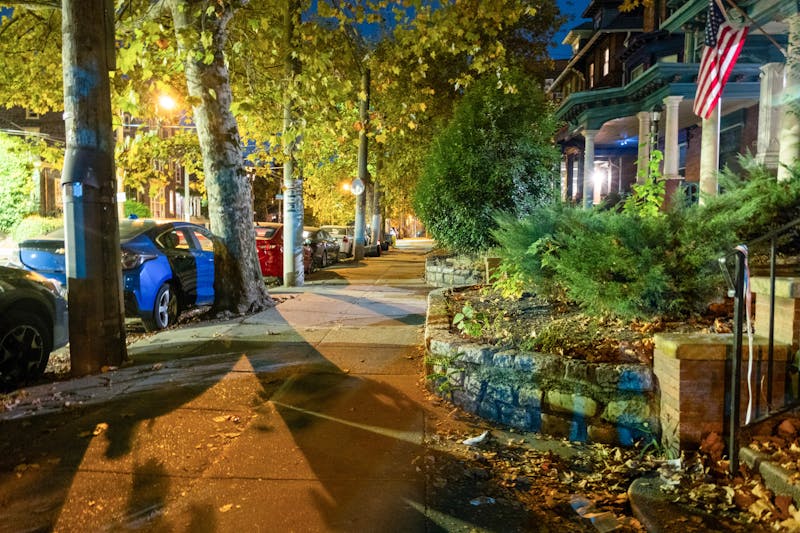
Some people look forward to Christmas, or Hanukkah, or Monday Night Football. I love all of those (viewers of this week's MNF had the joy of witnessing possibly the worst pass-interference call of this young season), but what I really look forward to is the presidential debates. The first one is tonight and features, as one political consultant put it, "Jaw of Thunder" versus "Lips of Destruction." I'll let you sort out which is which.
I love the idea of the debates. Two candidates with nowhere to run, forced for once to stand and answer questions about their past record and this country's future. And they matter. For better or for worse, people tend to judge the winner of the debates not on what he says, but on, as The New York Times put it, the "cut of his jib."
In 2000, when Gore sighed, I cringed. In the third debate, when he got so excited that he walked up to Bush while the governor was talking, I figured that the move would cost him one or two states alone (although, in the end, it was better than Kerry's Lambert Field gaffe. In this country, you can screw up anything except sports. That's our common religion). And with the debates come the highest-quality SNL skits, and new words like "strategery" worming their way into our vernacular.
But this time around? I'm ready to be bored.
What these two campaigns have forced the Commission on Presidential Debates to agree to is nothing short of a travesty, one that ensures that the debates will be nothing more than straight vanilla, a talking-points recital that's about as informative as a bucket of warm spit. Bush, who cut his teeth on "Ask President Bush" events that spawned "questions" like, "Mr. President, I don't have any questions, but I have three thank yous instead," should be thrilled. Kerry's campaign staff should have their collective heads examined.
After what were reported to be heated negotiations, the Bush and Kerry campaigns jointly released a 32-page "memorandum of understanding" that effectively removed any possible element of debate from the debates. According to Time magazine, "Bush's negotiators insisted on banning nearly all the stagecraft Kerry had used to devastating effect against his G.O.P. opponent, Governor William Weld, such as roaming from the lectern and asking direct questions." Candidates asking each other direct questions? Who would want that in a debate?
Just how artificial will the debate environment be? Lecterns will be placed 10 feet apart, to make the height disparity less evident. Room temperature will be somewhere between chilly and freezing since, as a strategist said in the Time article, "No one likes a sweater." During the town-hall debate, the audience will be a meticulous synthesis of Bush and Kerry supporters, lest an actual undecided voter who might actually benefit from the evening's event slip through.
What all this ensures is that no candidate will be at all surprised by any question, and both will no doubt be ready to regurgitate their previously memorized, focus group-tested answers as decided on months ago. This also means they won't be able to directly challenge each other on the issues pertaining to this election. There will be no, "There you go again" moments, no, "You're no Jack Kennedy" moments -- hell, there may not even be any "lockbox" moments. It doesn't take a political genius to figure out that this will be great for Bush, whose strength is staying on message, and bad for Kerry, who has so far proven much better at questioning Bush than expressing what it is that he himself stands for.
What's hilarious about all this is the public perception that the underdog going into the debates has the advantage, as was so evidenced last election. This has led to a comical exchange of compliments between the Bush and Kerry camps, with operatives from each side building up the other candidate as the true rhetorical wizard (the truth, I think, is that they both leave a bit to be desired in the oratorical department).
What is decidededly unfunny, however, is the knowledge that there will be no "moderators of color" to speak of, in any of the three contests. Somehow, it's unlikely that Bob Herbert, Bryant Gumbel, William Raspberry, Juan Williams Bernard Shaw or any other number of black journalists were all unavailable. Asking PBS's Gwen Ifill, who is black, to moderate the vice presidential debate, in a move that smacks of "consolation prize," was at best highly insensitive and at worst illustrative of the type of condescending behavior that has replaced outright racism in our society.
The debates were always important because they were the one opportunity to see the candidates verbally engaged without the filter, or at least with substantially less filter than usual. By scrubbing away any final remnants of substance from the contest, we will no doubt be left with a national media that fawns over one candidate's choice of tie or wheezes hysterically about another's facial reactions or tone of voice. While I have come to expect that level of coverage most of the time, the debates were my last bastion of election-year sanity amidst the sound and the fury of spin, talking heads and lobbyists. It is another blow in what is becoming an increasingly demoralizing election.
Eliot Sherman is a senior English major from Philadelphia and editorial page editor of The Daily Pennsylvanian. Diary of a Madman normally appears on Thursdays.
The Daily Pennsylvanian is an independent, student-run newspaper. Please consider making a donation to support the coverage that shapes the University. Your generosity ensures a future of strong journalism at Penn.
DonatePlease note All comments are eligible for publication in The Daily Pennsylvanian.







